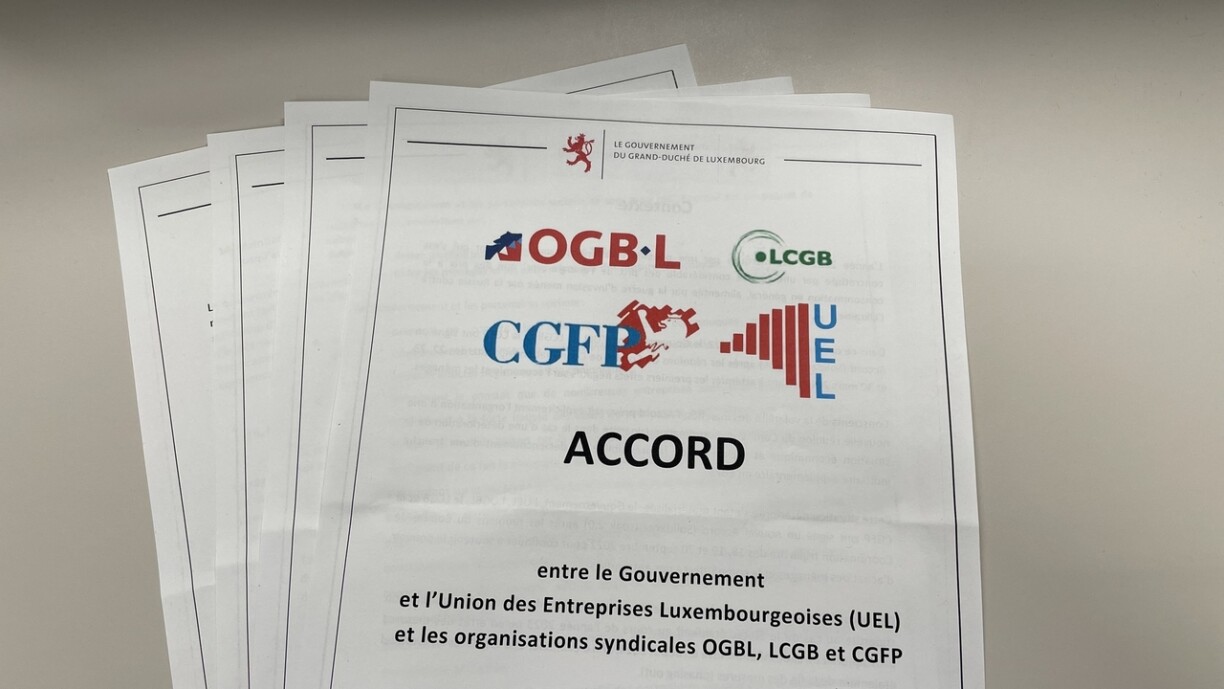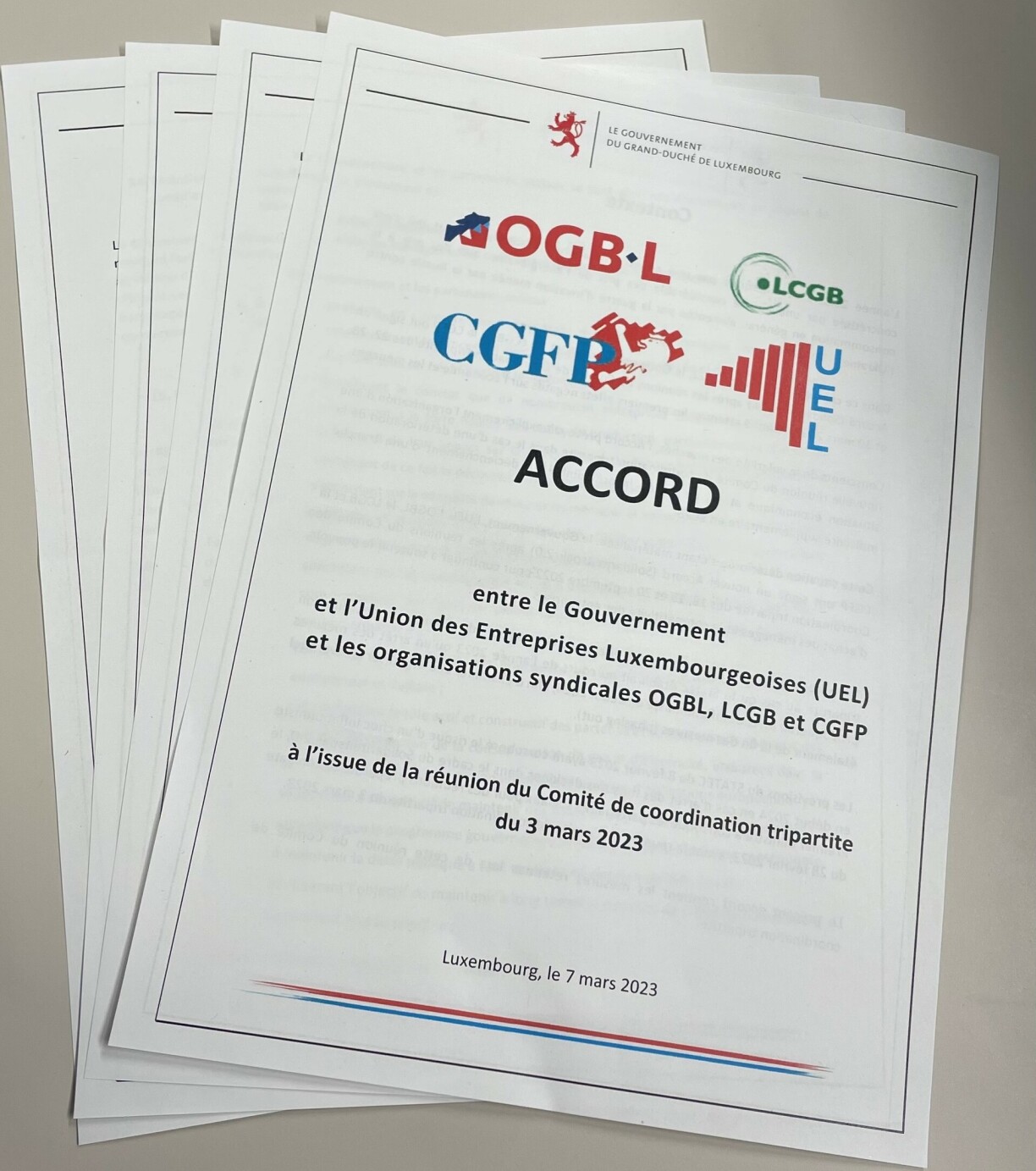
The tripartite agreement reached at the end of a long day of negotiations on Friday will be officially signed by government and social partners at the Ministry of State on Tuesday morning. It is intended to be short, concise, and pragmatic, which might explain the absence of a catchy title. Unlike the two previous agreements, which were labelled ‘solidarity pacts’, no slogan has been chosen for this latest agreement.
Opposition parties and unions, including the Independent Luxembourg Trade Union Confederation (OGBL), the Luxembourg Confederation of Christian Trade Unions (LCGB), and the General Confederation of the Civil Service (CGFP) all welcomed the package of new measures on Monday.
The text includes 15 measures that were jointly accepted at the Senningen Castle on Friday. The first is the compensation of the wage indexation that the National Institute of Statistics and Economic Studies (STATEC) forecast for October this year. According to the agreement, it will be fully compensated by the Employers’ Mutual Insurance Scheme up to, and including, January 2024.
The so-called ‘phasing-out’ will continue in 2024, which means the 15% cap on gas prices and the stabilisation of electricity costs will be prolonged beyond April this year, as initially scheduled. The 15-cent-reduction on the litre price of heating oil will also continue, the energy bonus will be extended, and the price of wood pellets will be reduced by 35% to a maximum of €200 per tonne.
The tariffs for residents of senior and care homes will also remain unchanged even in the event of energy price increases.
When it comes to fiscal measures, the agreement provides for a short-term tax credit this year, which corresponds to the adjustment of the tax table by two index brackets. Next year, a structural adjustment of the scale by 2.5 brackets is planned. A climate tax credit is also included in the measures as of 1 January 2024, which is intended to compensate for the CO2 tax for moderate salaries.
In terms of housing, the amount of the “bëllegen Akt” (tax credit on notarial acts) will be increased from €20,000 to €30,000 and the ceiling on home loan repayments will be retroactively increased to €3,000.
Finally, the government has already committed to organising a new tripartite in 2024 if a new wage indexation is announced before October. According to the latest STATEC forecasts, this seems likely at the moment.
The overall cost of the measures included in the agreement are estimated to amount to €850 million in 2024.
